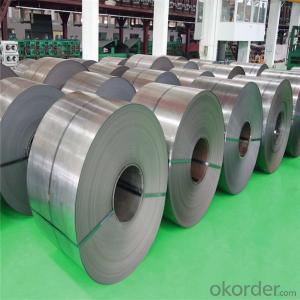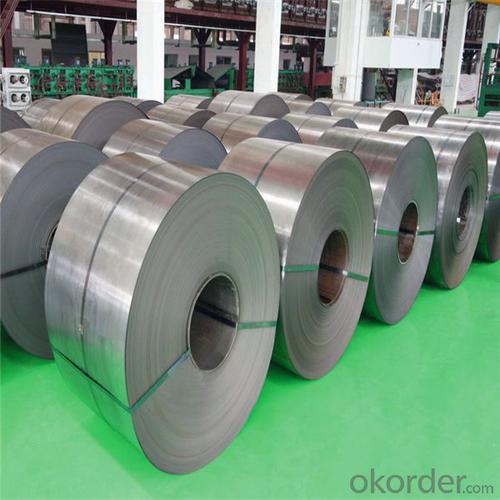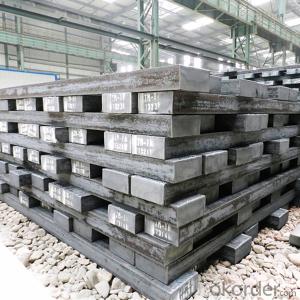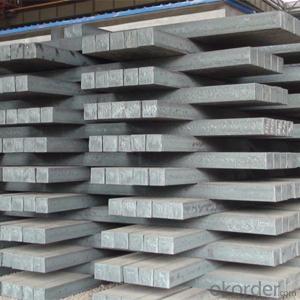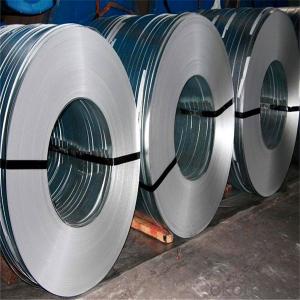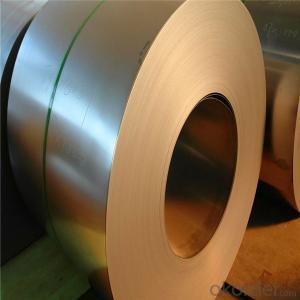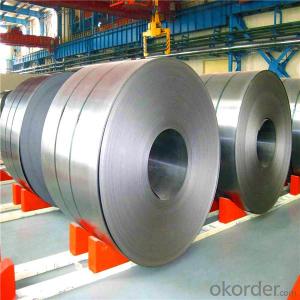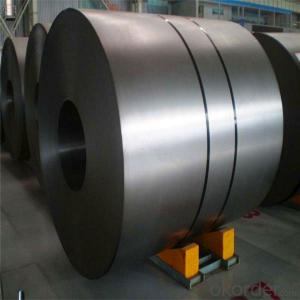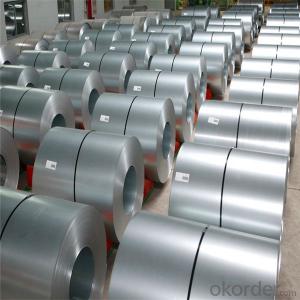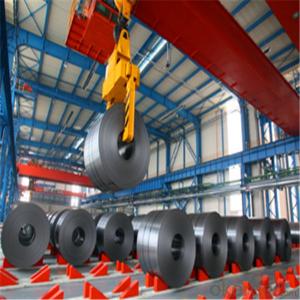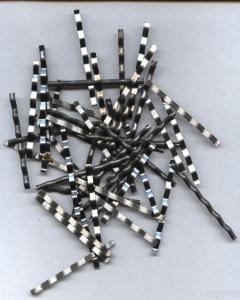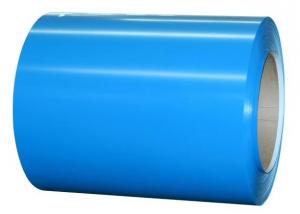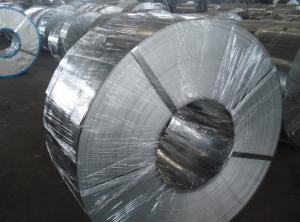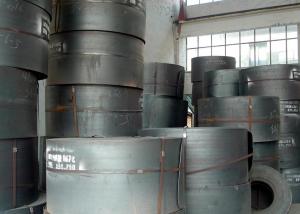Prime Quality Cold Rolled Steel Sheet/Coil China Supplier
- Loading Port:
- China main port
- Payment Terms:
- TT OR LC
- Min Order Qty:
- 20 m.t.
- Supply Capability:
- 50000 m.t./month
OKorder Service Pledge
OKorder Financial Service
You Might Also Like
Specification
Prime Quality SPCC Cold Rolled Steel Sheet/coil
Usage: Widely used to appliance,automobile industry or other decoration usage.
Certificate: ISO9001
Packing Details: Wrapped by water proof paper and plastic film.Covered with iron sheet,strapped by steel strips to protect the damage under transportation.
Details please check following introduction
Brief Introduction
Cold rolled steel coil is steel that has been worked below its recrystallization temperature by passing it between a pair of rollers. Recrystallization temperature is the temperature at which grains in the lattice structure of the metal have been rearranged, leaving it free of strain and deformations. Cold rolled steel coil is pre-treated before being cold rolled with a process known as pickling, which uses strong acids to remove scale and other impurities. The cold rolled steel coil is then passed through rollers to reduce its thickness. Most cold rolling takes place in multiple passes and as the size of the cold rolled steel coil is further reduced, its strength and hardness both increase, but its ductility decreases. After cold rolling, heating the metal up in a process known as annealing can restore some of its ductility. The final cold rolled steel coil may be manufactured in the form of sheets, strips, bars, or other forms.
Products Picture
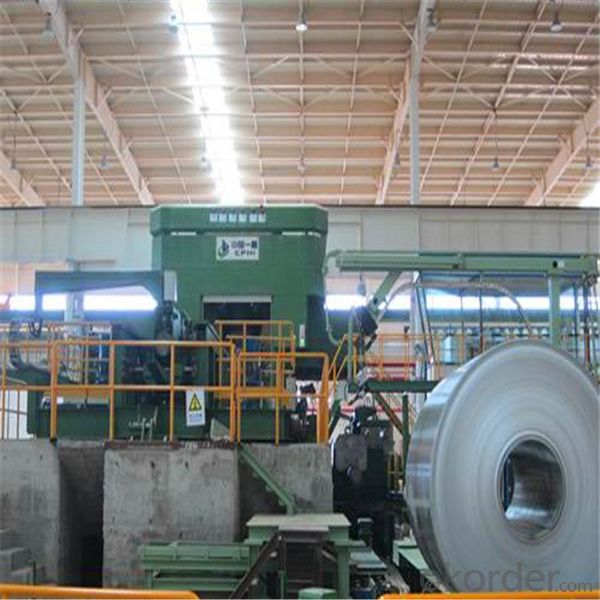
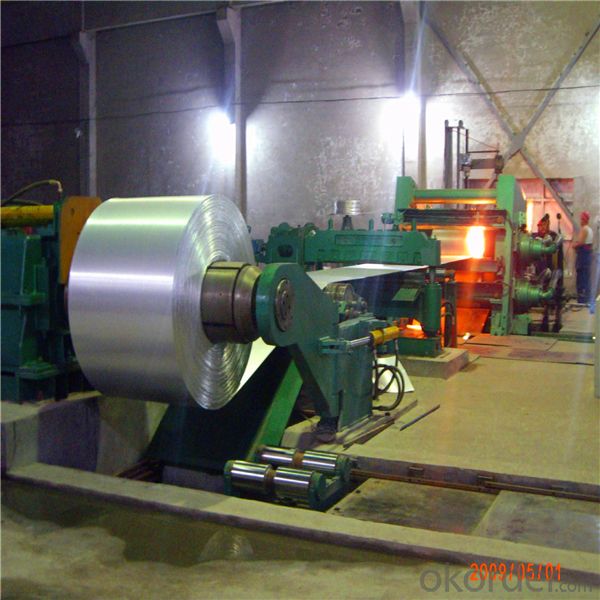
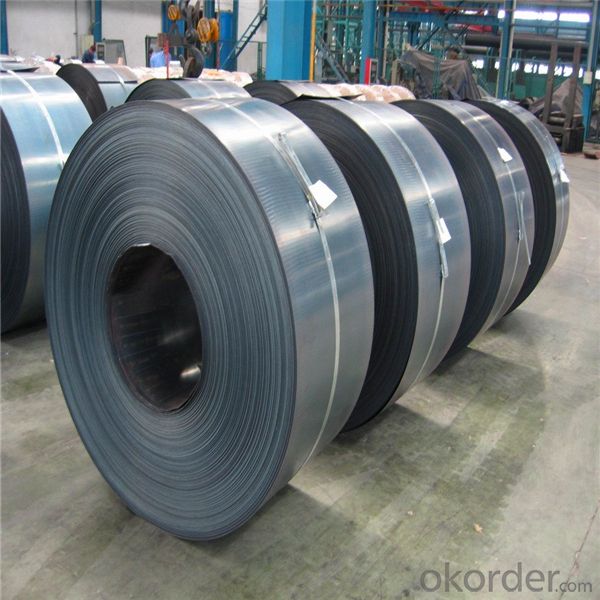
- Q: What are the different types of steel sections used in bridges?
- There are several types of steel sections commonly used in bridges, including I-beams, H-beams, box girders, and trusses. These sections are designed to provide strength, stability, and load-bearing capacity to support the weight of the bridge and withstand various forces such as tension, compression, and bending. Each type of section has its own unique shape and structural characteristics, allowing engineers to choose the most appropriate one based on the specific requirements of the bridge design.
- Q: What are the different types of steel clamps and their uses?
- There are several types of steel clamps with various uses. Some common types include C-clamps, bar clamps, pipe clamps, and spring clamps. C-clamps are versatile and have a wide opening, making them suitable for general woodworking and metalworking tasks. Bar clamps are longer and can apply even pressure across a larger area, ideal for securing large pieces during glue-ups. Pipe clamps are designed to hold together pipes and are commonly used in plumbing and construction projects. Spring clamps are smaller and lighter, often used for temporary or light-duty applications like holding down a tarp or securing a workpiece temporarily.
- Q: How are steel products used in the aerospace and aviation industry?
- Steel products are used in the aerospace and aviation industry for a variety of applications such as structural components, landing gear, and engine parts. Steel's high strength-to-weight ratio, durability, and resistance to heat make it an ideal material for these critical components, ensuring the safety and reliability of aircraft.
- Q: What are the different types of steel products used in the telecommunications industry?
- Some of the different types of steel products used in the telecommunications industry include steel towers, steel poles, steel cables, steel brackets, and steel enclosures. These products are used for the construction and installation of telecommunication infrastructure such as cell towers, transmission lines, and equipment enclosures.
- Q: What are the main properties of steel?
- The main properties of steel include high strength, durability, and excellent tensile and compressive strength. Steel also has a high melting point, good thermal conductivity, and is resistant to corrosion and rusting. It is a versatile material that can be easily formed and shaped, making it suitable for a wide range of applications in industries such as construction, automotive, and manufacturing.
- Q: Can steel be recycled?
- Yes, steel can be recycled.
- Q: How does steel reinforcement work in concrete structures?
- Steel reinforcement works in concrete structures by enhancing the overall strength and durability of the concrete. It consists of steel bars or mesh that are embedded within the concrete to provide tensile strength, which is lacking in concrete alone. When subjected to tension, the concrete tends to crack or fail, but the steel reinforcement helps to distribute and resist these forces, preventing the cracks from propagating. This combination of concrete and steel reinforcement creates a composite material that can withstand a wide range of loads and environmental conditions, ensuring the structural integrity and longevity of the concrete structure.
- Q: What are the properties of hardened steel?
- Hardened steel possesses several key properties such as increased strength, hardness, and wear resistance. It is characterized by its ability to withstand heavy loads and resist deformation under high pressure. Additionally, hardened steel exhibits improved durability, toughness, and resistance to corrosion. These properties make it suitable for various applications, including tools, machinery components, and construction materials.
- Q: What is the process of galvanizing steel?
- The process of galvanizing steel involves coating it with a layer of zinc to protect it from corrosion. This is done by first cleaning the steel surface to remove any impurities. Then, the steel is dipped into a bath of molten zinc or electroplated with zinc. The zinc bonds with the surface of the steel, creating a protective layer that prevents rust and extends the lifespan of the steel.
- Q: How is steel plate produced?
- Steel plate is produced through a process called hot rolling, where a large slab of heated steel is passed through a series of rolling mills to gradually reduce its thickness and shape it into a plate. This process involves high temperatures, pressure, and various mechanical manipulations to achieve the desired dimensions and properties of the steel plate.
Send your message to us
Prime Quality Cold Rolled Steel Sheet/Coil China Supplier
- Loading Port:
- China main port
- Payment Terms:
- TT OR LC
- Min Order Qty:
- 20 m.t.
- Supply Capability:
- 50000 m.t./month
OKorder Service Pledge
OKorder Financial Service
Similar products
Hot products
Hot Searches
Related keywords
